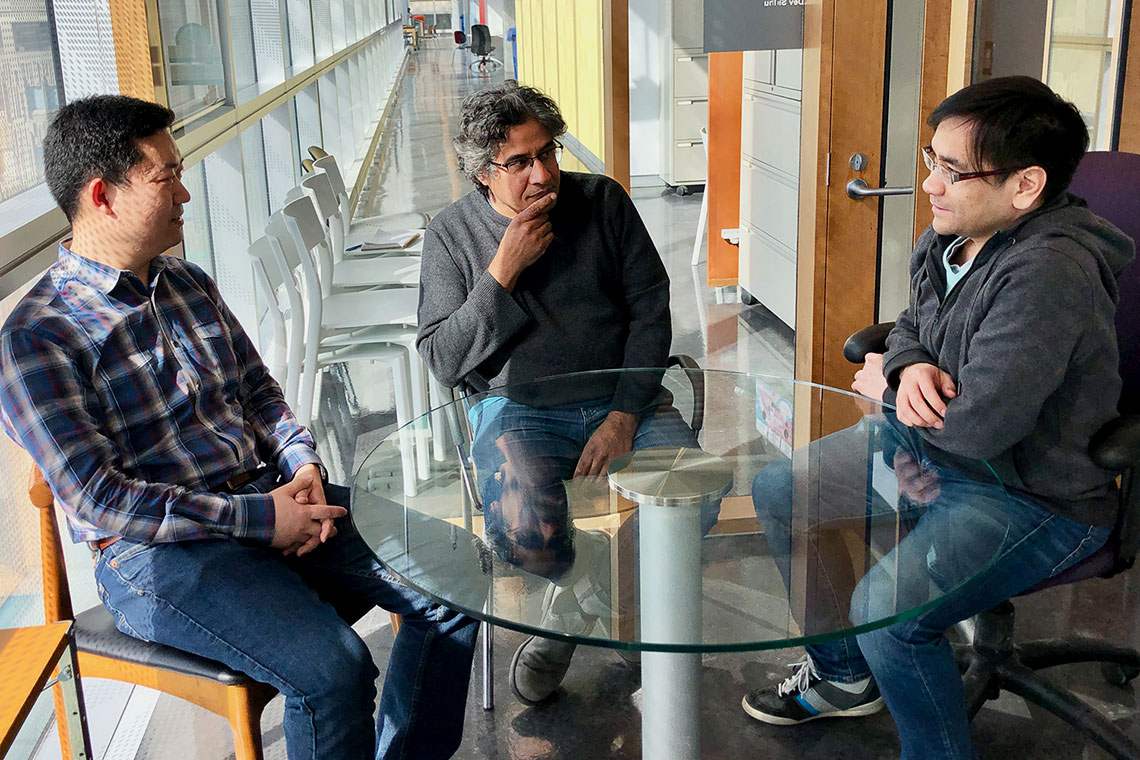Photo Credit: U of T News
Research team hopes to find candidate molecules to help with treatment of the virus
Rinna Diamantakos, Associate News Editor
As the number of confirmed COVID-19 cases continues to grow around the world, a team of researchers from the University of Toronto’s (U of T) Donnelly Centre for Cellular and Biomolecular Research have joined the global initiative to find antivirals to combat the spread of the virus.
Professor of molecular genetics, Sachdev Sidhu, will lead the team as it works to apply its protein-engineering technology in an attempt to find treatments and remedies for COVID-19.
The team includes diverse experts from across U of T and the University of Manitoba, namely, Roman Melnyk, professor of biochemistry at U of T and senior scientist at the Hospital for Sick Children; Brian Mark, virologist and professor at the University of Manitoba; Wei Zhang, former post-doctoral researcher in Sidhu’s Lab and current assistant professor at the University of Guelph; and Jacky Chung, researcher in Sidhu’s Lab.
Research will focus on ubiquitin, a protein present in all plant and animal cells and part of the cellular workings that COVID-19 uses for its own benefit. When a person is infected, COVID-19 releases proteins that affect the ubiquitin, allowing the virus to spread throughout the body and bypass any defence systems.
The team plans on creating a synthetic ubiquitin variant that will prevent the virus from multiplying and spreading. Through an analysis of the structure of different synthetic ubiquitin variants, the team hopes to find insight into the types of molecules that will be effective at stopping the virus.
The team’s research efforts have been financed by the federal government, which has promised nearly $27 million in research investments across the country. U of T and affiliated institutions will receive nearly $6 million in research funding as the hunt for low-cost diagnostics, vaccines, and disease transmission information continues around the world. Of this money, $2.7 million will go toward campus-based research and $3.13 million will go to hospitals affiliated with the university. $900,000 will go to the team researching antiviral treatments for COVID-19 over the next two years.
The federal government’s financing will allow Canada to join the global race to find vaccines, effective and affordable testing, and treatment methods. So far, research has been led by China and the United States, who produce new information daily.
Currently, there are more than 20 vaccines in development. However, despite efforts around the world, it could take months to determine the effectiveness of any of the vaccines and even longer to mass-produce them and distribute them globally.
The number of COVID-19 cases grows daily. According to research conducted by John Hopkins University in the United States, it is estimated that, as of March 27, over 560,000 people have been infected worldwide, with a death toll of over 25,000 and over 125,000 recovered.
On Saturday, March 21, Italy announced 793 more deaths, surpassing China’s death toll and marking the second consecutive day of the country’s biggest increase to date in the number of cases. As of March 27, Italy has recorded the most deaths, with over 8,000.
Around the world, countries have taken measures to stop the spread, with the U.K. being the most recent European country to close schools, pubs, restaurants and cafes, urging their citizens to remain indoors and to practise social distancing.
On March 17, Premier Doug Ford announced that Ontario will declare a state of emergency, a statement that legally forced the closure of public libraries, private schools, licensed child care centres, bars and restaurants, theatres, concert venues and indoor recreational programs, and prohibited the gathering of over 50 people in any location.
The Premier also announced the province’s investment plan, guaranteeing a total of $304 million to support the provincial response to COVID-19. With continuing support from both the federal and provincial government, the hope for a vaccine increases every day.
Sidhu told U of T News that his team hopes that it will be able to find candidate molecules that can be used for treatment within the next two years. Acknowledging the global effort to find treatment for COVID-19, Sidhu hopes that the research conducted at U of T can be sent to companies and chemists around the world who will be able to use their research to create drugs suitable for humans.
All information is accurate as of March 27.




